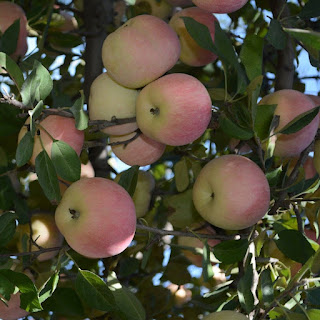Pomegranate
"Pomegranate a Specie of Punica"
Common Name:
- Anar
- Pomegranate
Botanical Name:
Punica granatum
"The name pomegranate comes from the Old Latin, pōmum and grānātum, meaning "apple" and "seed" respectively. Pomegranate possibly comes from Old French, describing the word pomme grenade. In early English, Punica granatum is known as the "Apple of Grenada"."
Lifespan: Perennial
Bloom Time: Summer
Plant Height: 6 to 20 feet
Spread: 4 to 15 feet
Flower Size: 0.4 to 0.8 inch
Habitat: Parks, gardens
Flower Color: Red
Leaf Color: Green, Bronze
Fruit Color: Red, Brown
Stem Color: Black, Gray
Fertilization:
Fertilize once in spring.
Family: Lythraceae - Loosestrife
Order: Myrtales - Myrtle order, Myrtles, evening primroses, and allies
Class: Magnoliopsida - Dicotyledons, Dicots, Eudicots
Phylum: Tracheophyta - Vascular plants, Seed plants, Ferns, Tracheophytes
Information about:
Pomegranate (Punica granatum) is a deciduous shrub or small tree native to western and southern Asia. It has a long history of cultivation and rich symbolism in polytheistic religions. Pomegranate fruits play an important role in many West Asian cuisines. In addition to culinary uses, this fruit-bearing shrub is also grown for ornamental purposes.
Interesting facts:
The pomegranate has been cultivated since ancient times, and many civilizations were familiar with the fruit. It has been a symbol of beauty and fertility in many cultures and even appears as a motif in Greek myths.
The Spanish city of Granade was named after the pomegranate.
Difficulty Rating:
Pomegranate is super easy to care for and resistant to almost all pests and diseases. It's a perfect option for brown-fingered gardeners.
Water requirements:
Although the pomegranate is relatively drought tolerant, it still needs regular moisture to produce fruit. Regular watering is crucial for young plants that have not yet developed a strong root system. The pomegranate prefers deep watering that allows the entire root system to get soaked.
Uses:
Artistic Value:
There are many poems praising pomegranate flowers in China.
Environmental protection value:
It can purify air and effectively absorb harmful gases such as sulfur dioxide.
Garden use:
The pomegranate is a popular farm and garden plant for its hardiness, attractiveness, and production of sweet, edible fruit. These trees are prized for their long harvest times, very long lifespan (they can live for more than 100 years), and their ability to thrive even in small gardens. This plant thrives alongside sago palm, aloe, and agave




Comments
Post a Comment